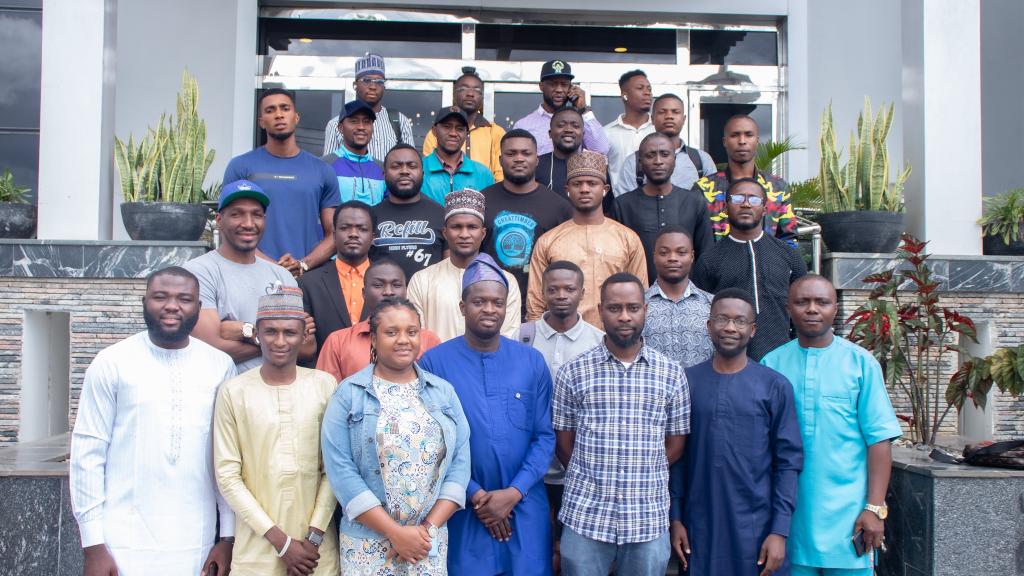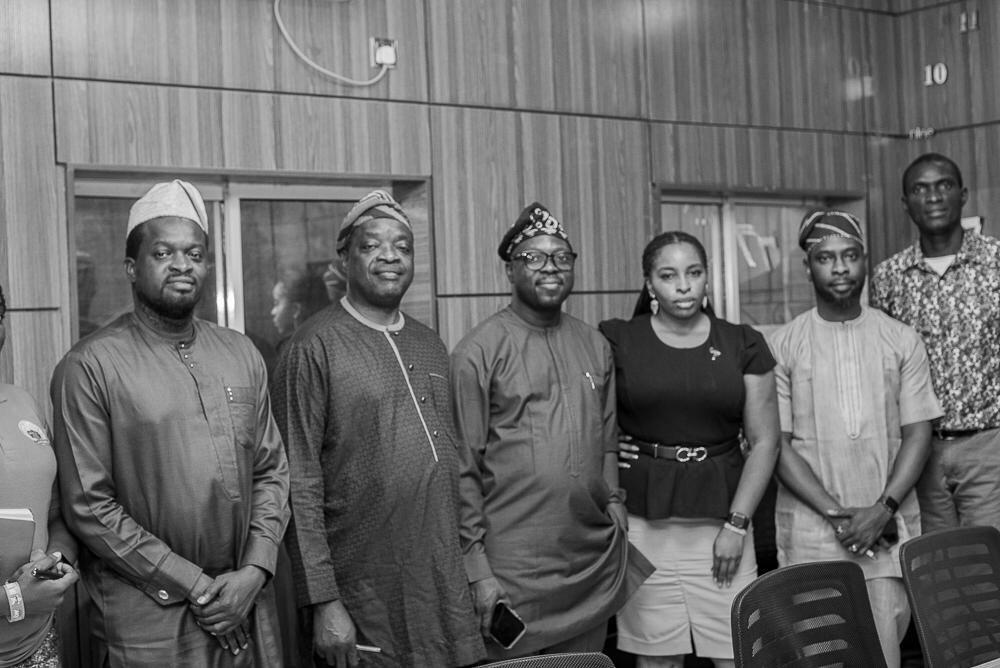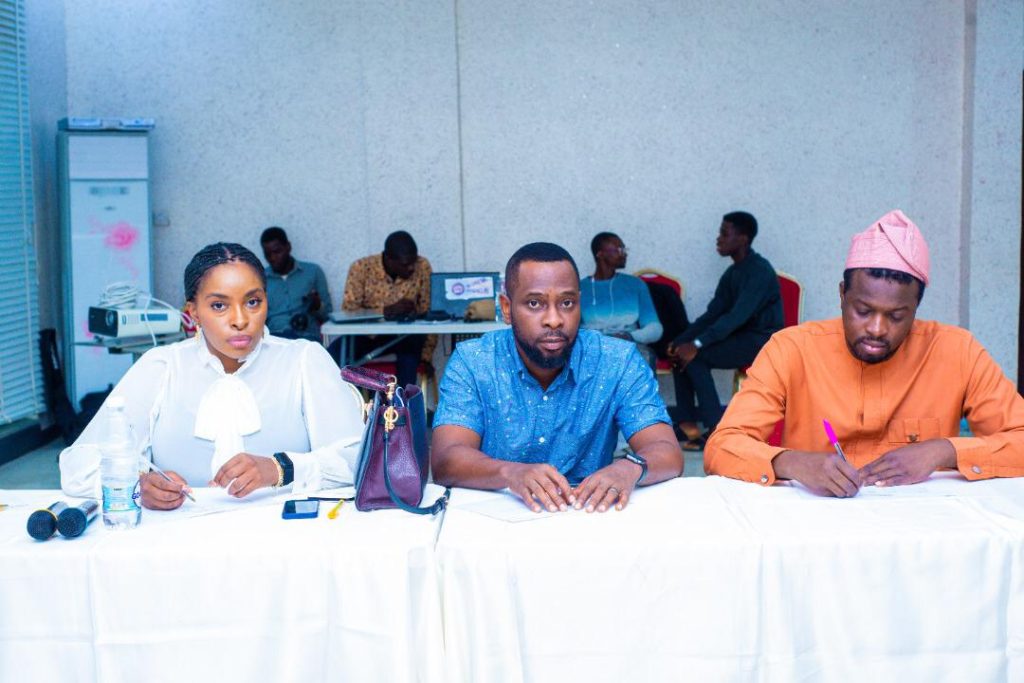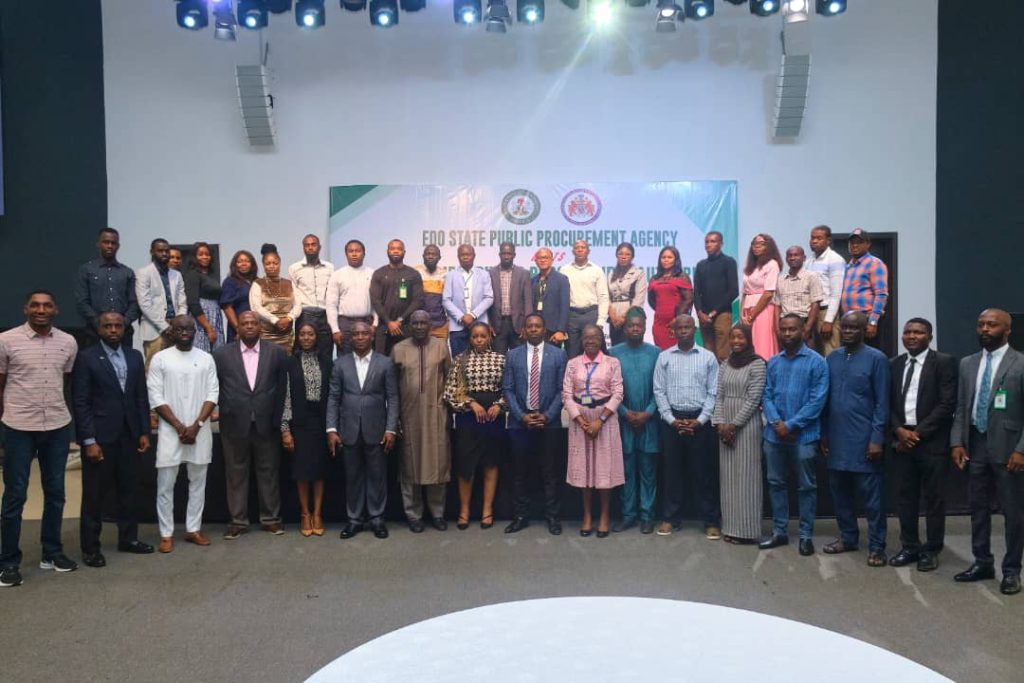In continuation of its efforts to weed the society of all kinds of corruption and trafficking crimes, Network Against Corruption and Human Trafficking (NACAT) on Tuesday staged a road walk against the vices in the Federal Capital Territory, Abuja.
Led by its Executive Director of Investigation, Fejiro Oliver, and its Legal Director, Barrister Ovie Justice, NACAT is a pro-democracy Civil Society Organization duly registered under Part “C” of the Companies and Allied Matters Act, Cap C20, Laws of the federation of Nigeria 2004 to, amongst other things, work with stakeholders for purposes of contributing to the global war against corruption, financial crimes, terrorism and economic sabotage. The group promotes good governance, transparency, rule of law, and sustenance of the security and wellbeing of Nigerians in the project of nation-building
In the 5.7-kilometer walk, the organization was joined by the personnel of Nigeria’s anti-graft agencies, the Economic and Financial Crimes Commission (EFCC), and Independent Corrupt Practices and Other Related Offences Commission (ICPC).
The staged sensitization walks, which started at 10.00 am, saw the pro-democracy civil society organization walk from Art and Culture, Area 10, in the FCT to Unity Fountain, where it addressed the media.
In his address, NACAT Programme Manager, Stanley Ugagbe said “What we are doing today is in continuation of our quest to weed the society of the menaces of corruption, drugs and human trafficking as well as arm citizens with the right information against the vices in Nigeria.”
The manager averred that the prevalence of twin vices of corruption and trafficking in Nigeria is the reason why the country is still classified as a developing country despite gaining independence over 60 years ago.
He stated that corruption is arguably the major vice rocking the nation. “On Transparency International’s 2022 Corruption Perceptions Index, Nigeria scored 24 on a scale from 0 (“highly corrupt”) to 100 (“very clean”). When ranked by score, Nigeria ranked 150th among the 180 countries in the Index, where the country ranked last is perceived to have the most corrupt public sector. For comparison, the best score was 90 (ranked 1), the worst score was 12 (ranked 180), and the average score was 43,” he said.
On the issue of trafficking, Stanley said “Nigeria remains a source, transit and destination country when it comes to human trafficking. In the 2018 Global Slavery Index (2018) Report, Nigeria ranked 32/167 of the countries with the highest number of slaves – 1,386,000. According to the National Agency for the Prohibition of Trafficking in Persons (NAPTIP) statistics from 2019- 2022, 61% of human trafficking in Nigeria happens internally, while 39% is generated from cross-border trafficking. It is the third most common crime in Nigeria after drug trafficking and economic fraud (UNESCO, 2006)”.
“It is sad to note that the general factors that increase vulnerability to trafficking in Nigeria include extreme poverty (33% -70 million people) live in extreme poverty), lack of economic opportunities, corruption, conflict/insecurity, climate change/resulting migration and western consumerism”.
The manager expressed sadness that these vices have remained prevalent in Nigeria. “Any nation, society, or group where these vices are allowed to thrive unabatedly is usually a home to all manner of anomalies. As an organization that is committed to nation building, we believe that if these vices can be curbed or reduced to the barest minimum, Nigeria can become a world giant,” Stanley said.
He said “It is on this basis that we are deploying all our arsenals against these vices in the country. We are focused on clamping down on corrupt elements in society. Let me echo it to the public that we will continue to track and checkmate the excesses of individuals and groups who live above their means, public servants who are complicit in contract racketeering, governmental office holders who are syphoning public funds for personal aggrandizement.
“We urge Nigerians who are toeing the path of drug and human trafficking as well as corrupt practices to retrace their steps and turn a new leaf. Irrespective of your status or who is behind you, we will come after you once you’re found complicit in these vices. And when we do, the full wrath of the law will be applied.
“Let me conclude by stating that as an organization, we will continue to advocate for integrity, justice, probity, and transparency in public and private organizations.
“We will keep working with relevant stakeholders and organizations for purposes of supporting the fight against corruption, drug, and human trafficking. In our capacity, we will continue to provide humanitarian services to less privileged persons in society.
“Also, our commitment to advancing human rights and render legal assistance to women, children and persons who are victims of sexual exploitation, drug and human trafficking will always be our priority,” Stanley said.
In her speech, the Assistant Director Public Enlightenment and Education Department of the ICPC Abuja, Mrs. Ese Okwong said the ICPC does not take partnerships with organizations for granted and that the agency is always excited when it’s about to fight against corruption. She noted that some Nigerians feel there is no big deal about corrupt practices, and that is why it becomes necessary to carry out sensitization. She called on stakeholders and other bodies to partner with NACAT in its bid to bring corruption to an end in the country.
She also said that the effect of corruption on the country is something nobody can be proud of and that the people should not be indifferent about fighting corrupt practices that have affected education, health and other sectors of the country. She advised that everyone must put hands together to say no to corruption.
On his part, the Assistant Commander and Head, Public Interface Unit Assistant Director, EFCC, Tony Orilade, said the current state of the country is as a result of corruption. Citing different corruption cases the agency is handling, he disclosed that corruption is the cause of a lack of basic and social amenities in the country.
Tony who was in company of the Superintendent and Head, Chief Security Officer Desk of EFCC for the march further disclosed that diversion of funds is the reason many projects are left unexecuted or poorly executed in the country.
NACAT Director, Barrister Ovie, hailed the EFCC and ICPC for their partnership and cooperation. He applauded the anti-corruption agencies for their unflinching commitment to the fight against corruption in recent times. He disclosed that working with the agencies is like ‘jolly fellows,’ stressing that NACAT will not take the partnership for granted.
Ovie further stated that the agencies do not discriminate and that they have attended petitions based on merit for the last seven years. He also thanked everyone who participated in the walk.
The activities of NACAT include, Policy Analysis, Private Investigations, Media, Whistle-blowing, Background Check Consultancy, Human Rights Advocacy, Mass Mobilization and Public Commentaries, Elections Observation & Reporting, Project Monitoring & Evaluation, Conferences, Seminars, Workshop & Publications, Leadership Training and Capacity Building & Empowerment.
The post NACAT partners EFCC, ICPC to hold walk against corruption, trafficking in Abuja appeared first on Vanguard News.
Last modified: April 5, 2023








